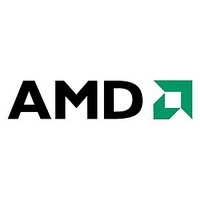am79c974 Advanced Micro Devices, am79c974 Datasheet - Page 46

am79c974
Manufacturer Part Number
am79c974
Description
Pcnettm-scsi Combination Ethernet And Scsi Controller For Pci Systems
Manufacturer
Advanced Micro Devices
Datasheet
1.AM79C974.pdf
(153 pages)
Available stocks
Company
Part Number
Manufacturer
Quantity
Price
Company:
Part Number:
am79c974AKC
Manufacturer:
AMD
Quantity:
1 831
Polling
If there is no network channel activity and there is no
pre- or post-receive or pre- or post-transmit activity be-
ing performed by the Am79C974 controller, then the
Am79C974 controller will periodically poll the current re-
ceive and transmit descriptor entries in order to ascer-
tain their ownership. If the DPOLL bit in CSR4 is set,
then the transmit polling function is disabled.
A typical polling operation consists of the following: The
Am79C974 controller will use the current receive de-
scriptor address stored internally to vector to the appro-
priate Receive Descriptor Table Entry (RDTE). It will
then use the current transmit descriptor address (stored
internally) to vector to the appropriate Transmit Descrip-
tor Table Entry (TDTE). The accesses will be made in
the following order: RMD1, then RMD0 of the current
RDTE during one bus arbitration, and after that, TMD1,
then TMD0 of the current TDTE during a second bus ar-
bitration. All information collected during polling activity
will be stored internally in the appropriate CSRs. (i.e.
CSR18, CSR19, CSR20, CSR21, CSR40, CSR42,
CSR50, CSR52). UnOWNed descriptor status will be in-
ternally ignored.
A typical receive poll is the product of the following
conditions:
1. Am79C974 controller does not possess ownership
2. Am79C974 controller does not possess ownership
If RXON=0 the Am79C974 controller will never poll
RDTE locations.
The ideal system should always have at least one RDTE
available for the possibility of an unpredictable receive
event. (This condition is not a requirement. If this condi-
tion is not met, it simply means that frames will be
missed by the system because there was no buffer
space available.) But the typical system usually has at
least one or two RDTEs available for the possibility of an
unpredictable receive event. Given that this condition is
satisfied, the current and next RDTE polls are rarely
seen and hence, the typical poll operation simply con-
sists of a check of the status of the current TDTE. When
there is only one RDTE (because the RLEN was set to
ZERO), then there is no “next RDTE” and ownership of
“next RDTE” cannot be checked. If there is at least one
RDTE, the RDTE poll will rarely be seen and the typical
poll operation simply consists of a check of the
current TDTE.
A typical transmit poll is the product of the following
conditions:
1. Am79C974 controller does not possess ownership
46
of the current RDTE and the poll time has elapsed
and RXON=1 (CSR0, bit 5), or
of the next RDTE the poll time has elapsed and
RXON=1.
of the current TDTE and
AMD
P R E L I M I N A R Y
Am79C974
2. Am79C974 controller does not possess ownership
3. Am79C974 controller does not possess ownership
Setting the TDMD bit of CSR0 will cause the microcode
controller to exit the poll counting code and immediately
perform a polling operation. If RDTE ownership has not
been previously established, then an RDTE poll will be
performed ahead of the TDTE poll. If the microcode is
not executing the poll counting code when the TDMD bit
is set, then the demanded poll of the TDTE will be de-
layed until the microcode returns to the poll
counting code.
The user may change the poll time value from the de-
fault of 65,536 clock periods by modifying the value in
the Polling Interval register (CSR47). Note that if a non–
default value is desired, then a strict sequence of setting
the INIT bit in CSR0, waiting for the IDON bit in CSR0,
then writing to CSR47, and then setting STRT in CSR0
must be observed, otherwise the default value will not
be overwritten. See the CSR47 section for details.
Transmit Descriptor Table Entry (TDTE)
If, after a TDTE access, the Am79C974 controller finds
that the OWN bit of that TDTE is not set, then the
Am79C974 controller resumes the poll time count and
reexamines the same TDTE at the next expiration of the
poll time count.
If the OWN bit of the TDTE is set, but Start of Frame
(STP) bit is not set, the Am79C974 controller will imme-
diately request the bus in order to reset the OWN bit of
this descriptor. (This condition would normally be found
following a LCOL or RETRY error that occurred in the
middle of a transmit frame chain of buffers.) After reset-
ting the OWN bit of this descriptor, the Am79C974 con-
troller will again immediately request the bus in order to
access the next TDTE location in the ring.
If the OWN bit is set and the buffer length is 0, the OWN
bit will be reset. In the LANCE the buffer length of 0 is
interpreted as a 4096-byte buffer. It is acceptable to
have a 0 length buffer on transmit with STP = 1 or
STP = 1 and ENP = 1. It is not acceptable to have 0
length buffer with STP = 0 and ENP =1.
If the OWN bit is set and the start of frame (STP) bit is
set, then microcode control proceeds to a routine that
will enable transmit data transfers to the FIFO. The
DPOLL=0 (CSR4, bit 2) and
TXON=1 (CSR0, bit 4) and
the poll time has elapsed, or
of the current TDTE and
DPOLL=0 and
TXON=1 and
a frame has just been received, or
of the current TDTE and
DPOLL=0 and
TXON=1 and
a frame has just been transmitted.












